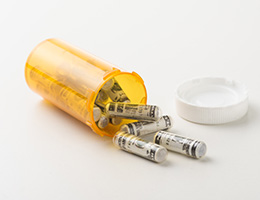
From miracle medicines to impossibly easy weight-loss remedies, you'll find no shortage of questionable health products out there. Some may sound too good to be true. And they often are.
To be sure, plenty of legitimate health products are on the market. But other promotions may be downright dishonest.
The good news? With a dose of know-how and a healthy measure of skepticism, you can take steps to avoid falling for a health hoax.
Where might you encounter a rip-off?
Health scams can be a problem just about anywhere: on social media, in computer pop-up ads, in email spam, on TV infomercials, in radio ads, in magazines and in stores. And they can extend to all kinds of bogus products, such as pills, powders, capsules, creams, oils and devices.
Anyone can fall victim to a scam. But the U.S. Food and Drug Administration (FDA) reports that unscrupulous companies often target people who are looking for treatments for terminal diseases such as cancer and Alzheimer's or for conditions like diabetes, arthritis or autism. They also commonly claim to offer solutions for weight loss or sexual performance.
Hoaxes hurt
Health scams aren't just a frustrating waste of money. They can cause serious harm, either directly or indirectly. For instance, when people are conned into buying unproven products, they might put off getting a crucial diagnosis or seeking a treatment that actually works, according to FDA.
Another risk? Some bogus products have been found to contain potentially unsafe ingredients, such as drugs that have been removed from the market or mixtures that lack proper testing in humans.
Turn on your radar
One of the best ways to be a better consumer? Learn some of the signs that a product promotion could be a con. According to FDA and other health experts, here are some red flags of a possible rip-off:
- Ads that use dramatic words and fantastic claims like "miracle cure," "revolutionary breakthrough" or "secret ingredient."
- Claims that one product will cure many different health conditions.
- Promises of no-risk, money-back guarantees. Unscrupulous sellers might not stick around long enough for you to cash in.
- Quick fixes and easy solutions to difficult problems. Claims like these should get your radar going: "Lose weight quickly without dieting." "Cure your diabetes the natural way." "Look 20 years younger—today!"
- Meaningless medical jargon. We're talking about big words that sound impressive but may be used to hide a lack of scientific proof.
- Conspiracy claims. For instance, they might talk about a cure that "your doctor and big pharma don't want you to know about."
- Products touted with personal testimonials, especially when the results sound incredible or easy to fake. Claims such as "it cured my disease" are hard to prove.
- Claims that a product is "natural" and therefore safer. Natural substances can still be dangerous or cause side effects.
Look into it
If you're unsure that a product is what it claims to be, there are a few ways to double-check. For instance, you can ask your doctor or another healthcare professional what they think. You can also look the claim up on trustworthy websites, such as those run by federal government health agencies or respected medical organizations like the Alzheimer's Association or the American Cancer Society. Or you can see if the FDA website mentions any actions against the maker.
When checking out a health claim, it can also help to know more about how studies are done and what the various research terms mean.
Report it
If you suspect a product could be a health hoax, you can report it to FDA. Your help could even save the next person from becoming a health scammer's target.
Reviewed 2/4/2025